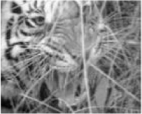题目内容
I was dirty, smelly, hungry and somewhere beneath all that, suntanned(皮肤晒黑).It was the end of an Inter-Rail holiday.My body couldn’t take any more punishment.My mind couldn’t deal with any more foreign timetables, currencies or languages.
“Never again,” I said, as I stepped onto home ground.I said exactly the same thing the following year.And the next, all I had to do was buy one train ticket and, because I was under twenty-five years old, I could spend a whole month going anywhere I wanted in Europe.Ordinary beds are never the same once you’ve learnt to sleep in the passage of a train, the rhythm rocking you into a deep sleep.
Carrying all your possessions on your back in a rucksack(背包)makes you have a very basic approach to travel, and encourages incredible wastefulness that can lead to burning socks that have become too anti-social (不合群的),and getting rid of books when finished.On the other hand, this way of looking at life is entirely in the spirit of Inter-Rail, for common sense and reasoning can be thrown out of the window along with the paperback book and the socks.All it takes to achieve this carefree attitude is one of those tickets in your hand.
Any system that enables young people to travel through countries at a rate of more than one a day must be pretty social.On that first trip, my friends and I were at first unware of the possibilities of this type of train ticket, thinking it was just an inexpensive way of getting to and from our chosen camp-site in southern France.But the idea of non-stop travel proved too attractive, for there was always just one more country over the border, always that little bit further to go.And what did the extra miles cost us? Nothing.
We were not completely uninterested in culture.But this was a first holiday without parents, as it was for most other Inter-Railers, and in organizing our own timetable we left out everything except the most viable sights.This was the chance to escape the guided tour, an opportunity to do something different.I took great pride in the fact that, in many places, all I could be bothered to see was the view from the station.We were just there to get by, and to have good time doing so.In this we were not different from most of the other Inter-Railers with whom we shared passage floors, food and water, money and music.
The excitement of travel comes from the sudden reality of somewhere that was previously just a name.It is as if the city in which you arrive never actually existed until the train pulsing at the station and you are able to see __it__ with your own tried eyes for the first time.
1.At the end of his first trip , the writer said “ Never again” because_____
A.he fell ill.
B.he disliked trains
C.he was tired from the journey
D.he had lost money
2.What does the writer mean by “ this way of looking at life” in Paragraph3?
A.Worrying about your clothes
B.Throwing unwanted things away.
C.Behaving in an anti-social way
D.Looking after your possessions
3.Why did the writer originally buy an Inter-Rail ticket?
A.To get to one place cheaply.
B.To meet other young people.
C.To see a lot of famous places
D.To go on a tour of Europe.
4.What the writer liked about traveling without his parents was that______.
A. he could see more interesting places
B.he could spend more time sightseeing
C.he could stay away from home longer
D.he could make his own decisions
5.What does the underlined word “it” in the last sentence of Paragraph 6 refer to?
A.A name B.The city C.The train D.The station
CBADB

 字词句段篇系列答案
字词句段篇系列答案
| |||||||||||||||||||||||||||||||||||||||||||||||||||||||||||||||||||||||||
| |||||||||||||||||||||||||||||||||||||||||||||||||||||||||||||||||||||||||||||||||||||||||||||||||||||||||||||||||||||||||||||||||||||||||||||||||||||||||||||||||||||||||||||||||||||||||||||||||||||||||||||||||||||||||||||||||||||||||||||||||||||||||||||||||||||||||||||||||||||||||||
完形填空(共20小题,每小题1.5分,满分30分)
Surrounded by rolling green hills dotted with horses and cows, the town of Waimea on Hawaii’s Big Island is a peaceful and friendly place. One afternoon, while staying with friends at their house there, my husband and I decided to go for a 36 along the many, mostly traffic-free, country lanes in the area.
We met a beautiful Golden Retriever. He seemed 37 friendly so we stopped to play with him, 38 a stick which he retrieved(取回) several times happily. When we 39 our walk, he followed us, and although I worried that he 40 be going too far from his home, I couldn’t deny that we were enjoying his 41 .
After about twenty minutes, we found ourselves walking along a dirt road in an unfamiliar area. One house, almost hidden by shrubbery(灌木林) and shaded by tall trees,seemed 42 strange. I felt an urge to be as far away from that place as possible.
Just then, the door to the house creaked open and five dogs 43 , barking and growling as they ran toward us. I felt 44 and couldn’t move. There was nowhere to 45 and no time to run..
All of a sudden, our new friend appeared between the dogs and us. He faced them – all five of them – growling and baring his teeth. I was 46 to see the attacking dogs stop in their tracks ten feet away from him. Our protector 47 them there while we escaped. 48 a safe distance, we looked back and saw the five dogs 49 back toward their house.
But the Golden Retriever was 50 in sight. I felt an ache in my 51 ; I missed our friend already. Instinctively, I knew he was not hurt. With a feeling of 52 , we made our way back to the house, 53 the whole way that we would see him again. But it was not to be.
When I told our friend about the encounter, her eyes flew wide open 54 she exclaimed, “It was an angel!”
To this day I have no 55 that a four-legged angel protected us.
| 【小题1】 |
|
| 【小题2】 |
|
| 【小题3】 |
|
| 【小题4】 |
|
| 【小题5】 |
|
| 【小题6】 |
|
| 【小题7】 |
|
| 【小题8】 |
|
| 【小题9】 |
|
| 【小题10】 |
|
| 【小题11】 |
|
| 【小题12】 |
|
| 【小题13】 |
|
| 【小题14】 |
|
| 【小题15】 |
|
| 【小题16】 |
|
| 【小题17】 |
|
| 【小题18】 |
|
| 【小题19】 |
|
| 【小题20】 |
|
One day, when I was in high school, I saw a kid named Kyle from my class walking home from school with all his books, I thought to myself, “__1___ would anyone bring home all his books for the weekend? He must really be 2___.”As I was walking, I saw several kids running toward him. They ran at him, 3 all his books out of his arms and he fell down in the dirt, His glasses went 4 and landed in the grass.
I ran over to him. 5 I handed him his glasses, he looked at me and said, “Hey, thanks!”
I helped him pick up his books, and asked him where he lived. As it 6 , he lived near me. We talked all the way home. Over the next four years, Kyle and I became best friends.
Kyle was the top student of our class, one of those guys that really found themselves during high school. Therefore he had the 7 to prepare a graduation speech. On the graduation day, I could see that he was 8 .So, I patted him on the back and said, “Hey, big guy, you’ll be 9 !” He looked at me and smiled.
He cleared his throat, and began. “Graduation is a time to 10 those who helped you make it through those tough years. Your parents, your teachers… but mostly your friends, I am here to tell all of you that being a friend to someone is the best 11 you can give him.”
I just looked at my friend with 12 as he told the story of the first day we met. He had planned to kill himself over the weekend and was carrying his books home. “Thankfully, nothing happened. My friend 13 me from doing the unspeakable.”
Not until that moment did I realize that you should never underestimate(低估) the 14 of your actions. With one small gesture you can 15 a person’s life. For better or for worse.
|
||||||
|
||||||
|
||||||
|
||||||
|
||||||
|
||||||
|
||||||
|
||||||
|
||||||
|
||||||
|
||||||
|
||||||
|
||||||
|
||||||
|
